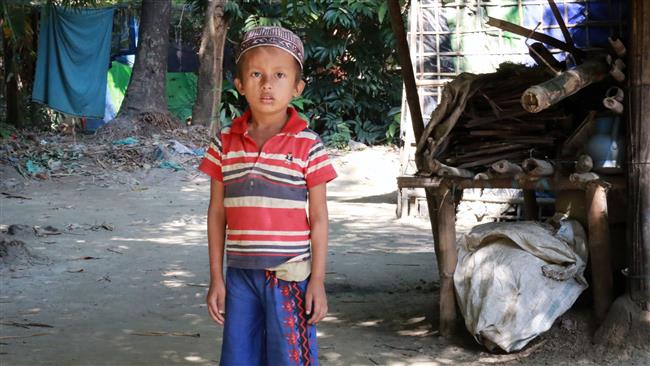Press TV- Several Western countries have called on Myanmar's government to allow humanitarian aid deliveries to Rohingya Muslims in the western state of Rakhine.
The aid deliveries are seemingly approved by top government officials in the capital, Naypyidaw, diplomats from 14 countries including France, the Netherlands, Spain, Turkey and the United States said on Friday.
However, the diplomats said, officials in Rakhine often ban or delay the aid access.
"We are concerned by delays and urge all Myanmar authorities to overcome the obstacles that have so far prevented a full resumption (of aid deliveries)," the diplomats said in a statement.
Myanmar's military has launched a fresh wave of crackdown on Muslims since an alleged attack on border guards on October 9 left nine policemen dead. The government blamed the Rohingya for the assault. There have been numerous accounts by eyewitnesses of summary executions, rapes and arson attacks against Muslims since the crackdown began.
The statement also said that "tens of thousands of people who need humanitarian aid, including children with acute malnutrition, have been without it now for nearly two months."
The United Nations said only about 20,000 people out of more than 150,000 aid-reliant Rohingya Muslims have received aid since October 9 under a partial resumption of deliveries.
[caption id="" align="aligncenter" width="555"]
 Members of the persecuted Rohingya Muslims gather for the arrival of a delegation of UN officials and foreign diplomats in Ale Than Kyaw village in Maungdaw, Myanmar's Rakhine state, November 3, 2016. (Photo by AFP)[/caption]
Members of the persecuted Rohingya Muslims gather for the arrival of a delegation of UN officials and foreign diplomats in Ale Than Kyaw village in Maungdaw, Myanmar's Rakhine state, November 3, 2016. (Photo by AFP)[/caption]The UN has already called on Myanmar's State Counselor Aung San Suu Kyi to take action to end the brutal crackdown on the Rohingya in Rakhine.
At least 30,000 Rohingya have been internally displaced in Rakhine, while about 22,000 have fled to Bangladesh to seek refuge since November 1, the United Nations said in its latest update on the situation.
Rakhine has been the scene of communal violence at the hands of Buddhist extremists since 2012. Hundreds of people have been killed and tens of thousands have been forced from homes and live in squalid camps in dire conditions in Myanmar, Thailand, Malaysia and Indonesia.
The government denies full citizenship to the 1.1 million-strong Rohingya population, branding them illegal immigrants from Bangladesh. However, many believe the Rohingya are a community of ancient lineage in Myanmar.
According to the UN, the Rohingya are one of the most persecuted minorities in the world.











